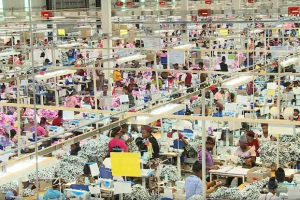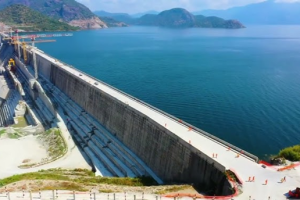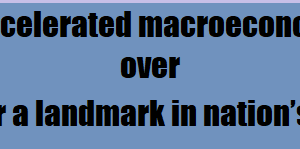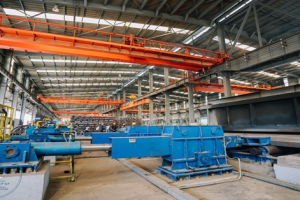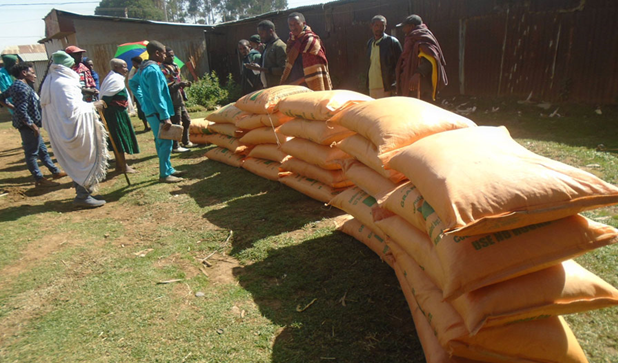
Ethiopia is implementing several development programs to ensure food and nutritional security for its people, particularly by establishing mechanisms to increase agricultural production and productivity; it is bringing about tangible change through its development activities such as making technology and inputs accessible to farmers.
One of its successful development activities that can be cited as an example of this is wheat cultivation, even in the summer, with irrigation which was previously protected by Westerners. In this way, it has moved from a wheat receiver to exporter.
Such progress has been possible in a short period of time due to the special attention and commitment given by the government to the sector. The growth of farmers’ productivity is also due to the growing culture of making inputs such as soil fertilizers widely available when needed.
As development has expanded, the demand for fertilizers has also increased significantly; on the other hand, the fact that the purchase of fertilizer is consuming a large portion of the country’s resources, coupled with the constantly rising price of fertilizer in the world and other problems, has become another development obstacle. The government has planned some activities that help to permanently eliminate this problem and reliably address the issue of food security.
Among these development plans, Prime Minister Abiy Ahmed (PhD) recently announced the issue of soil fertilizer, in his briefing to the members of the House of People’s Representatives. According to the Prime Minister, Ethiopia needs about 24 million quintals of soil fertilizer every year; for this, 150 thousand quintals of soil fertilizer is transported into the country from the port every day.
“The second Ethiopian Renaissance is the establishment of a soil fertilizer factory,” Abiy said. Ethiopia’s inability to produce fertilizer is an issue that affects many farmers. He mentioned that a study has been conducted to solve this problem sustainably, and announced that the study will require 2.5 to 3 billion Dollar for the construction of the factory. It will take at least three years or more to build the fertilizer factory.
“If possible, the factory will be built with the private sector through individual investment; if not, the government will build it itself,” the Prime Minister said, adding that the process of establishing the factory will probably begin next year.
The Ethiopian Press Agency asked Tadele Mamo (PhD), Director of Agricultural Economics Research and Researcher at the Ethiopian Agricultural Research Institute, what is expected of the country to achieve its goal of ensuring food sovereignty. According to his explanation; fertilizer is one of the most important inputs needed to increase agricultural production and productivity. Fertilizer is often not imported at the right time; so farmers are unable to obtain the desired amount of product. On the other hand, if fertilizer is not imported quickly due to the difficult roads in most rural areas of the country, the planting season may be missed.
“The fact that a large amount of foreign exchange is needed to import fertilizer, which also uses national resources that could be used for other development, has a negative impact on economic growth,” he said.
Especially now, with the farmers growing their production culture three times a year, the government is finding it difficult to supply fertilizer quickly and widely, and as a result, farmers are finding it difficult to increase their productivity as they had hoped. On the other hand, fertilizer purchases are mostly based on the needs of selling countries, and there is a possibility that countries that import fertilizers extensively, such as Ethiopia, fall under the influence of the sellers.
As an example, instead of dap and urea, which are needed for Ethiopian land, NPS fertilizer was distributed under the pretext that research was conducted only to meet the needs of the sellers. This puts agricultural productivity under pressure from the selling countries, and it has made it difficult for farmers to obtain the fertilizer in the required type, quantity and time.
“Despite the government’s increasing the amount of fertilizer imported, farmers are still not using even half of what they should,” he said.
Ethiopia is one of the countries with the lowest fertilizer consumption globally, which has been a major obstacle to increasing agricultural production and productivity. According to research, Ethiopia needs three times more fertilizer than it currently uses to achieve its goal of ensuring food sovereignty.
Furthermore, if there is no good relationship between countries, whether it is fertilizer or other imported inputs, the country’s overall performance could be at risk. This means that not only the countries that sell the fertilizer but also the countries where the fertilizer enters their port may twist hands of the importer, because it is not just a matter of production but also of politics. A farmer’s lack of fertilizer can not only lead to productivity and food security issues, but also political problems, he said.
Sometimes, even if the seller countries increase the price after the contract is signed, it creates a situation where there is no alternative but to buy at the stated price. Especially, since the fertilizer that Ethiopia imports is brought by sea, the problem may worsen if there is no peace in the destination countries and ports until it enters the country.
Tadele said that the Ethiopian government has recognized these problems and, like the Abbay Dam, is planning to build a fertilizer factory in coordination with the private sector, which shows how committed it is to ensuring food security and sovereignty.
The construction of the fertilizer factory in the country will, above all, enable farmers to obtain fertilizer on time and carry out their agricultural work properly. Farmers used to lose 5% of their expected production due to lack of fertilizer; the construction of the factory in the country will not only enable them to obtain the lost production, but will also increase the contribution of agriculture to the national economy in general.
On the other hand, when the fertilizer is produced locally, the farmer can benefit more because the price is reduced. As a result of reduction in transportation and other costs, it will create an opportunity for farmers to use that money to purchase other fertilizers.
“This will increase production and productivity. Since it is available all year round like any other commodity, it will be safe to carry out its production work; it will also reduce its fatigue,” he explained.
The researcher said that farmers engaged in urban agriculture, in particular, previously had a challenge in obtaining fertilizer due to lack of access to extension services; the change will benefit them and allow them to contribute significantly to national productivity.
According to him, the construction of the fertilizer factory is a huge development project and requires high investment. It can only be realized when the government, the private sector, donor organizations, and the community work together. He pointed out that farmers can increase their productivity and make their products widely available and affordable only when the country can build huge projects like a fertilizer factory, and said that all citizens should understand this and repeat the initiative shown for the construction of Abbay Dam here as well.
Similarly, all private sector actors should understand the great benefits of building the factory for the country and make their own positive contributions to its construction. If they invest in the fertilizer factory as they do in other sectors, they will also benefit in the end; for this, they should stand by the government with initiative, he said.
Furthermore, Tadele called on donor countries and financial institutions to support the construction of fertilizer factory, which is one of the important development projects that can solve the problem sustainably, instead of supporting citizens after a problem arises.
In particular, financial institutions such as the African Development Bank have learned from recent US decisions that Western support can never lift the citizens of the continent out of poverty and is not sustainable.
Therefore, he said that financial institutions should provide a lasting solution to the efforts of Ethiopia and other countries to overcome poverty, in addition to the support they have been providing so far.
As the researcher pointed out; the government should also invite foreign investors to participate in the construction of the fertilizer factory; in particular, it is necessary to create a favorable environment for foreign investors from countries with experience in the sector. Involving foreign investors in the fertilizer factory will not only allow them to benefit from their experience, but also provide an opportunity to gradually become self-reliant.
He emphasized that the construction of the factory can permanently free the country from dependence on foreign aid, so everyone should contribute their part with determination.
BY BACHA ZEWDIE
THE ETHIOPIAN HERALD WEDNESDAY 9 APRIL 2025


